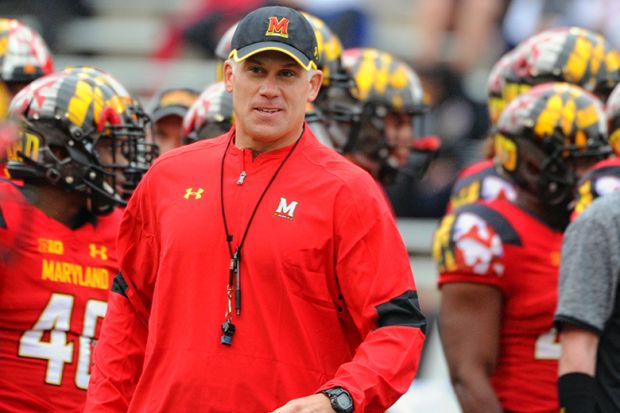After a deadly scandal in its football programme, the University of Maryland chose to let its president resign rather than tackle the football team’s head coach.
But after students, players and some electioneering politicians protested loudly, the university finally decided to fire the coach on 31 October.
In the latest example of the dominant power that sports programmes can hold over major US universities, the Maryland president, Wallace Loh, had elected on 30 October to retire early when asked by Maryland’s governing board of regents to reinstate the football coach, D. J. Durkin.
Mr Durkin and his coaching staff have been under fire since a player on their team, 19-year-old Jordan McNair, died in June of allegedly untreated heatstroke suffered at a gruelling team practice. A separate report last week described wider dysfunction in Maryland’s athletics department that allowed for abusive behaviour.
Despite the regents’ insistence on keeping Mr Durkin, Professor Loh’s opposition was bolstered by an outpouring of support for his position – from students, faculty and administrators – when he returned to the flagship campus in College Park, just north of Washington, after his meeting with the regents.
“The overwhelming majority of stakeholders expressed serious concerns about Coach D. J. Durkin returning to the campus,” Professor Loh, a native of China known for his efforts at improving minority student performance, said in a written statement to the university community.
The regents’ position was further weakened when a series of leading Maryland politicians, many of them standing for election in voting next week – including the state’s governor – issued statements denouncing the regents’ backing of Mr Durkin and the university’s athletic director, Damon Evans. And several members of the Maryland football team walked out of practice on 30 October when Mr Durkin arrived after being reinstated on the orders of the regents.
Professor Loh – without directly describing the regents as having backed down – said in his statement on 31 October that Mr Durkin “was informed that the university will part ways”.
“This is a difficult decision, but it is the right one for our entire university,” Professor Loh said.
Maryland’s reluctance to challenge its athletics department is just the latest in a long line of examples of US universities embarrassed or overpowered by their big-dollar sports divisions.
Especially high-profile recent cases including Penn State University’s president, Graham Spanier, being fired and then criminally convicted of overlooking a sex abuse scandal within his football programme; and an ongoing series of federal criminal trials examining alleged bribery and other corruption in the basketball programmes of at least 11 major US universities.
Money is the driver. At least 27 US colleges generate more than $100 million (£78 million) in annual revenue from athletics. The highest-paid public employee in most US states is a college football or basketball coach.
Maryland, regularly listed by the Times Higher Education World University Rankings as among the world’s top 100 research institutions, struggled with such prioritisation issues long before Mr McNair’s death. The university in 2012 moved its sports teams from the local Atlantic Coast Conference into the Big Ten Conference, centred hundreds of miles away in the Chicago area, in a bid for more valuable television contracts.
The change meant that Maryland faculty were brought along, becoming members of the Committee on Institutional Cooperation – later renamed the Big Ten Academic Alliance – through which they were then expected to cooperate more closely on research with the Big Ten institutions.
Mr Durkin’s removal and Professor Loh’s departure – he pledged to retire in June – do not mark the end of investigations into Mr McNair’s death and Maryland athletics. State lawmakers have scheduled a hearing for later this month to examine the actions of the regents in trying to retain Mr Durkin and Mr Evans.
Register to continue
Why register?
- Registration is free and only takes a moment
- Once registered, you can read 3 articles a month
- Sign up for our newsletter
Subscribe
Or subscribe for unlimited access to:
- Unlimited access to news, views, insights & reviews
- Digital editions
- Digital access to THE’s university and college rankings analysis
Already registered or a current subscriber? Login







